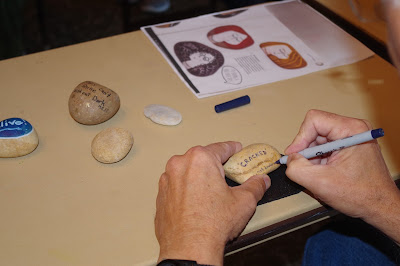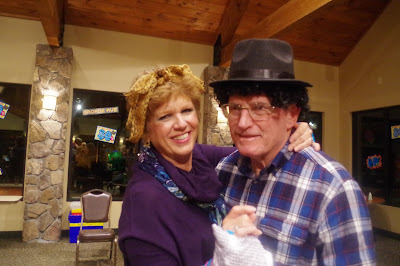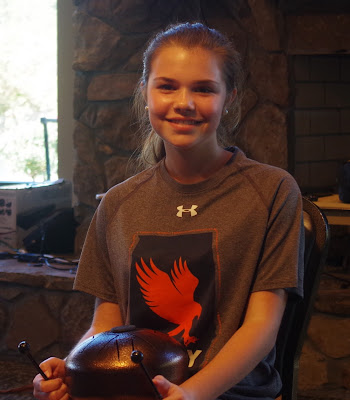I'm going to do something very different this week. I'm just going to give you links to articles and videos of Stroke Survivors coping with Aphasia and Apraxia. As you brows these you will see more videos on the pages you link to. I encourage you to view these also to gain additional insight into this issue many Stroke Survivors face.
What Is Aphasia
4 Things Aphasia Taught Me
David Coping with Aphasia
Ivan Coping with Aphasia
Interviews with Aphasia Sufferers
I hope this not only helps you see but to understand what Aphasia sufferers are experiencing. For those of you who are suffering from Aphasia I hope this shows you that you are not alone and there is hope. For those who do not have Aphasia I hope this teaches you to be patient, to listen, and to let the person express themselves as best as they can. Patience, understanding their frustration, and respect is what need from us.
------------------------------------------------------------------------------------------
Sunday, August 27, 2017
Sunday, August 20, 2017
Helping Others Recover
Included here is a link to help you survivors and caregivers find the stroke group in your area. Eventually it will be a permanent link with the ones on the left of your screen. All you need to do is enter your zip code and the search radius in miles and it will tell you if there is one and where. Just click on this following link to get started: Find a Stroke Group in Your Area.
This week's post come from the StrokeNetwork web site:
http://www.strokenetwork.org written by David Wasielewski
David had a stroke in 2005 ending his career as a logistics consultant. Since the stroke he returned to college for a Sociology degree. He is a peer counselor, facilitates a local stroke support group, volunteers at the local United Way and writes for The Stroke Network.
-----------------------------------------------------------------------------------------------------
By David Wasielewski
Role of a Good Support Group
I recently became the facilitator of our local stroke support group. Our last leader had to retire to take care of an ailing family member. I had taken the lead on occasion, but now had to carefully consider my new role. Old members accepted the change without issue. Truth is, no one else wanted to do it. It was the arrival of new folks that caused me to more carefully evaluate my role and exactly what my obligations were to the group. How was I to manage the arrival of new folks?
How much advice was I obligated to give? How are the inevitable questions from new members to be answered? Although I find I have no issues sharing advice about stroke recovery and post stroke life with others I determined that I needed to take a less active role in dispensing my ‘wisdom’ to these new folks.
As new folks come into the group they receive a warm welcome and an opportunity to explore the group at their own pace. A discussion with folks who have been around for a while led to an agreement that this was appropriate. It is not our job to show the new folks the paths that we have successfully traveled but rather to help these new folks find their own post stroke path.
Often, questions from the new folks are difficult to answer. “How long until I get better? When will I be able to walk again? When can I drive again?” Fortunately, our group is large enough and diverse enough to provide a variety of answers to these questions. Often the answer from each member is simply to relay our personal experiences with recovery.
We’ve all heard the standard answers. “It all depends.” “Everyone is different.” And the most difficult, ”It’s probably not going to happen.” We can’t and won’t give you the answer but we can help you to realize that it all depends on you and you own situation.
We simply relay our own experience and let the new folks come to their own conclusions. The variety of answers is usually enough to spark the realization that we don’t have the answers that these folks are looking for. The point is for them to realize that wherever their recovery path takes them we’re here to support those efforts. We might not all end up in the same place but we all get better in our own way. And we’re all here together to celebrate our journeys.
We can all advise new folks about the tools available to them, PT, OT and speech / cognitive therapy, medical and holistic treatments. We are all aware of these tools and how to use them. Teaching someone how to use a tool does not determine what they will build with those tools. The life each of us builds with those tools is up to us. We advise these folks how to use the tools, not what to build.
Finding the tools is difficult for new survivors and inevitably takes some time but continued encouragement usually pays off as these folks relay their adventures at each monthly meeting. The stories are often as funny as they are extraordinary. But, all important nonetheless as folks move on. The best stories are often told by a survivor and caregiver. The survivor will relate an experience as they remember it, while the caregiver often has a slightly different, maybe less flattering take on the situation. We all learn to laugh at our failures and celebrate our accomplishments.
While every survivor is different, each support group will be different as well. Hopefully these words of wisdom will be useful to other folks on their recovery journeys.
********************************************************************************************************
This week's post come from the StrokeNetwork web site:
http://www.strokenetwork.org written by David Wasielewski
David had a stroke in 2005 ending his career as a logistics consultant. Since the stroke he returned to college for a Sociology degree. He is a peer counselor, facilitates a local stroke support group, volunteers at the local United Way and writes for The Stroke Network.
-----------------------------------------------------------------------------------------------------
By David Wasielewski
Role of a Good Support Group
I recently became the facilitator of our local stroke support group. Our last leader had to retire to take care of an ailing family member. I had taken the lead on occasion, but now had to carefully consider my new role. Old members accepted the change without issue. Truth is, no one else wanted to do it. It was the arrival of new folks that caused me to more carefully evaluate my role and exactly what my obligations were to the group. How was I to manage the arrival of new folks?
How much advice was I obligated to give? How are the inevitable questions from new members to be answered? Although I find I have no issues sharing advice about stroke recovery and post stroke life with others I determined that I needed to take a less active role in dispensing my ‘wisdom’ to these new folks.
As new folks come into the group they receive a warm welcome and an opportunity to explore the group at their own pace. A discussion with folks who have been around for a while led to an agreement that this was appropriate. It is not our job to show the new folks the paths that we have successfully traveled but rather to help these new folks find their own post stroke path.
Often, questions from the new folks are difficult to answer. “How long until I get better? When will I be able to walk again? When can I drive again?” Fortunately, our group is large enough and diverse enough to provide a variety of answers to these questions. Often the answer from each member is simply to relay our personal experiences with recovery.
We’ve all heard the standard answers. “It all depends.” “Everyone is different.” And the most difficult, ”It’s probably not going to happen.” We can’t and won’t give you the answer but we can help you to realize that it all depends on you and you own situation.
We simply relay our own experience and let the new folks come to their own conclusions. The variety of answers is usually enough to spark the realization that we don’t have the answers that these folks are looking for. The point is for them to realize that wherever their recovery path takes them we’re here to support those efforts. We might not all end up in the same place but we all get better in our own way. And we’re all here together to celebrate our journeys.
We can all advise new folks about the tools available to them, PT, OT and speech / cognitive therapy, medical and holistic treatments. We are all aware of these tools and how to use them. Teaching someone how to use a tool does not determine what they will build with those tools. The life each of us builds with those tools is up to us. We advise these folks how to use the tools, not what to build.
Finding the tools is difficult for new survivors and inevitably takes some time but continued encouragement usually pays off as these folks relay their adventures at each monthly meeting. The stories are often as funny as they are extraordinary. But, all important nonetheless as folks move on. The best stories are often told by a survivor and caregiver. The survivor will relate an experience as they remember it, while the caregiver often has a slightly different, maybe less flattering take on the situation. We all learn to laugh at our failures and celebrate our accomplishments.
While every survivor is different, each support group will be different as well. Hopefully these words of wisdom will be useful to other folks on their recovery journeys.
********************************************************************************************************
Copyright ©June 2017
The Stroke Network, Inc.
P.O. Box 492 Abingdon, Maryland 21009
All rights reserved.
Sunday, August 13, 2017
Chattanooga Stroke Camp
Included here is a link to help you survivors and caregivers find the stroke group in your area. Eventually it will be a permanent link with the ones on the left of your screen. All you need to do is enter your zip code and the search radius in miles and it will tell you if there is one and where. Just click on this following link to get started: Find a Stroke Group in Your Area.
Last October (2016) we held another weekend camp (Friday-Sunday) in Chattanooga, Tennesee. Here's a look at the people and some of the activities we enjoy. We provide camps for stroke survivors and their caregivers throughout the country. Please call us to see if we have a camp in your area. 800-688-5450. To learn more about us go to our website: www.strokecamp.org.
Last October (2016) we held another weekend camp (Friday-Sunday) in Chattanooga, Tennesee. Here's a look at the people and some of the activities we enjoy. We provide camps for stroke survivors and their caregivers throughout the country. Please call us to see if we have a camp in your area. 800-688-5450. To learn more about us go to our website: www.strokecamp.org.
Subscribe to:
Comments (Atom)

































































